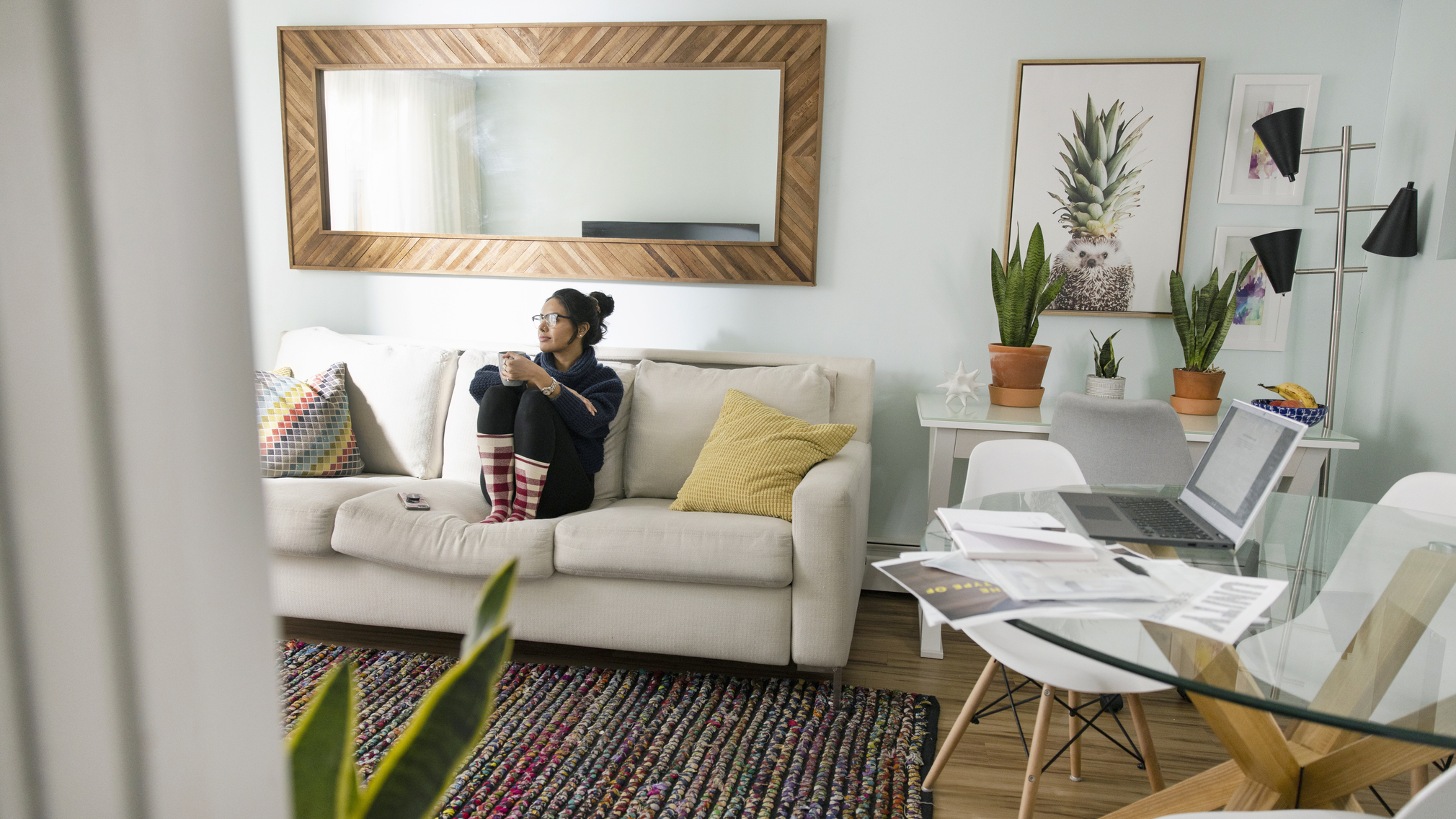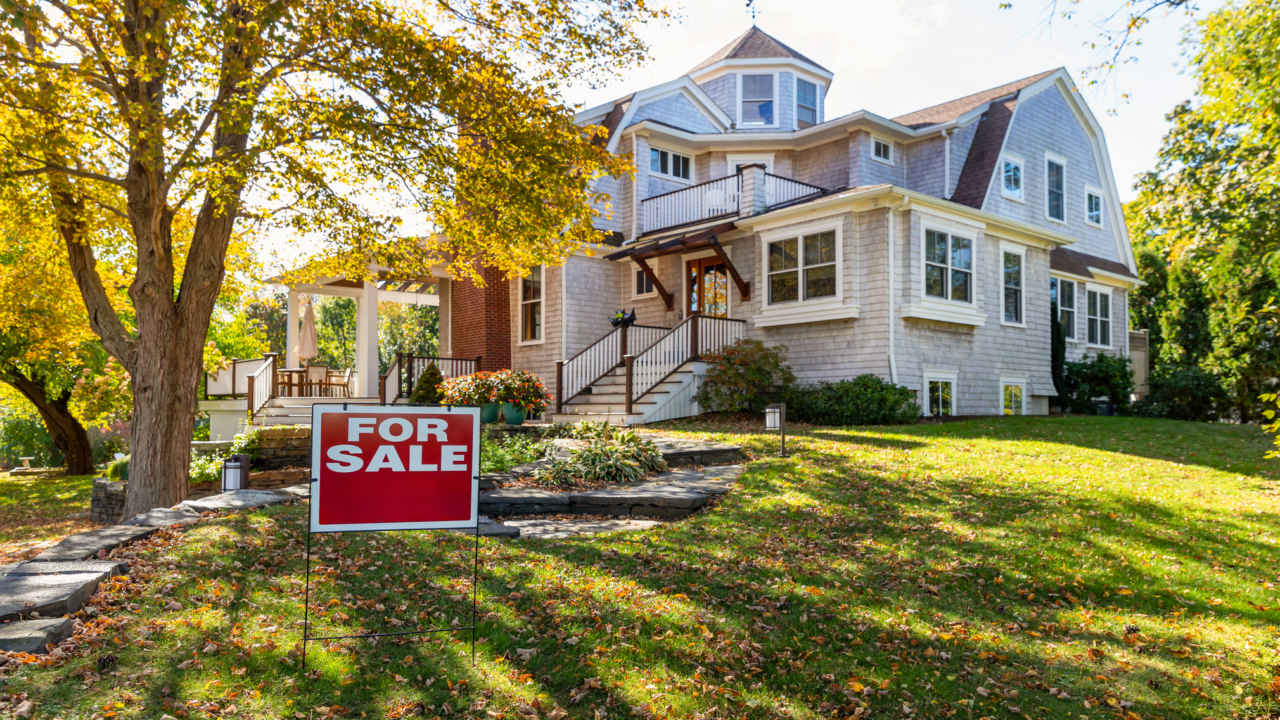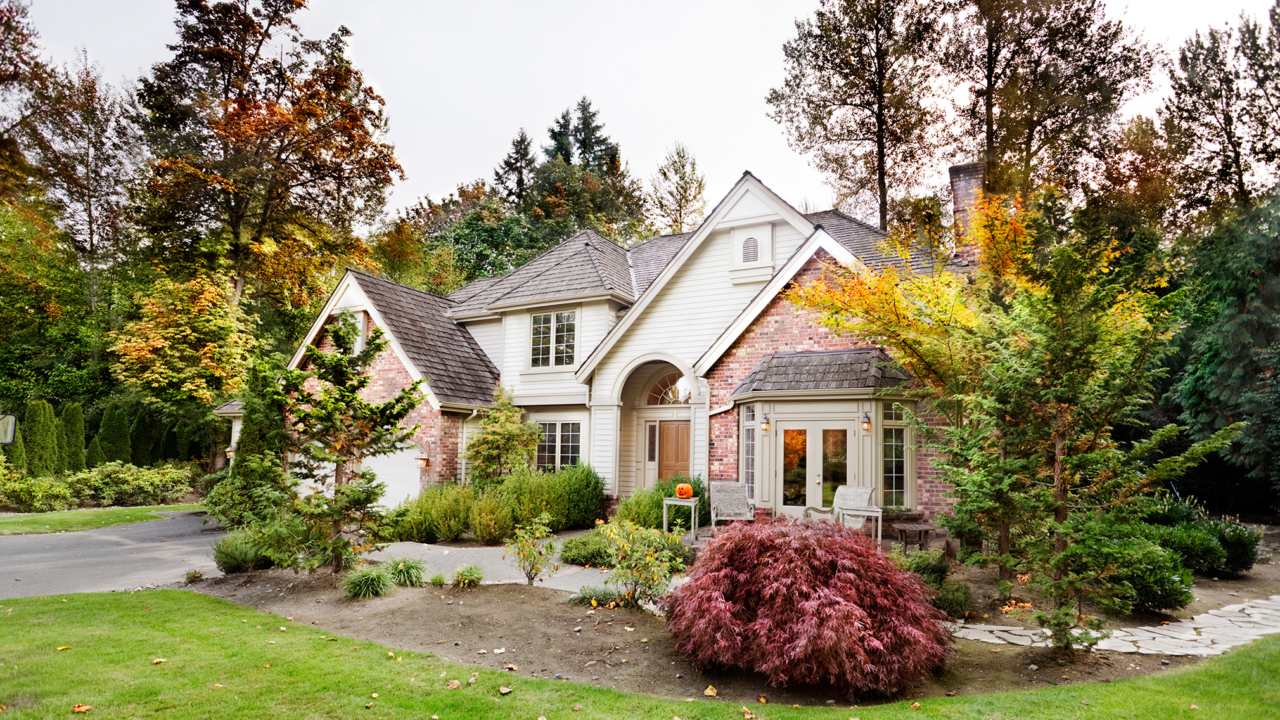10 Mistakes to Avoid When Selling Your Home
Learn how to get the most out of your home sale.


Selling your home is no easy process, in terms of both the actual logistics and the emotional connection you often have to your home. After all, according to the Zillow Group Consumer Housing Trends Report 2024, the average seller reported living in their homes for about 12 years before selling. While most sales don’t go 100 percent smoothly, there are some common home-selling mistakes you can avoid to help make the process less stressful and less emotional.
Whether you're a first-time seller or you've been through the process before, being aware of what to watch for makes all the difference. Here are the biggest mistakes when selling your home:
- Overpricing
- Listing your home privately
- Not hiring an agent
- Not timing correctly
- Ignoring repairs
- Getting emotional
- Not doing enough prep work
- Not hiring a photographer
- Lack of curb appeal
- Failing to factor in additional costs
1. Overpricing your home
One of the most important steps to selling a house is determining the right price — the price that will let you sell in a reasonable amount of time, for a profit that you're comfortable with.
The risk of pricing your home too high
When listing your home for sale, one common pitfall is giving in to the temptation of a too-high listing price. Here's why:
- It deters qualified buyers in your price range.
- It can make your home sit on the market longer. And the longer your home's on the market, the less buyers feel like they need to put in an offer quickly.
- If you end up having to do a price reduction, buyers will feel like they have extra negotiating power.
- If your listing goes stale, you might end up selling for less than you would have if you had priced it appropriately from the start.
Determining the right listing price
There are few different ways for sellers to determine an accurate listing price.
Get a CMA from an agent
A comparative market analysis (called a CMA for short) is an estimate of your home's value, prepared by a local real estate agent. They base their analysis off of similar recently sold homes, and they'll often provide this service free of charge to earn your business.
Collect comps on your own
If you're not working with an agent, you can do your own comp research. Using Zillow's Recently Sold filter, identify homes that are similar to yours that have sold in the last three to six months, using the following criteria:
- Same neighborhood
- Similar size (within about 300 square feet)
- Same home type — condo, house or townhouse
- Similar condition or upgrades (if a comp has hardwoods and your home has vinyl flooring, you'll want to adjust a bit)
Hire an appraiser
If you're selling in a particularly competitive market or you need to sell quickly, it may be worth the $500-$700 a professional appraiser charges to get an expert opinion on the value of your home. An appraisal report can give you peace of mind about the price you've chosen, and it can be a handy negotiating tool with buyers.
Don't worry about underpricing
Sellers are often worried about underpricing, but overpricing is a bigger concern. Underpricing is actually a strategy agents use in hot markets, since a lower asking price can attract multiple buyers and cause a bidding war. You could end up selling for more than the market value, just because of the demand.
2. Listing your home privately
Your agent may offer you options for how and where to list your home for sale. If you're looking to sell quickly and for the best price, consider using a Multiple Listing Service (MLS). An MLS is used to share your home listing with a wide network of agents, their clients, and popular real estate websites like Zillow. This is a big help in getting your home maximum exposure to attract the most buyers — and typically gets you more money. Meanwhile, private listings — also called “pocket listings,” are only visible to a select group of agents or brokers — not the public. Not only does this get your home in front of fewer people, but it can also make the selling process take longer.
Research from a 2023 study by Bright MLS shows that homes listed on their local MLS typically sell for 17.5% more than those listed privately. In 2022, this meant an extra $53,000 for the average seller. And according to the same study, 63% of homes that started as private listings ended up selling only after they were listed on the MLS. Using the MLS is often the key to a faster and more profitable sale.
3. Not hiring an agent (if you're not willing to do the work)
Unless you have the time, dedication and know-how to list your house for sale by owner (FSBO), you’ll be better off using an agent. Only about 7% of sellers did not work with an agent at some point during their home selling process, according to the Zillow Group Consumer Housing Trends Report 2024. Here are a few key benefits of hiring an agent:
- Your agent will deal with the many pages of paperwork required.
- Your agent will minimize stress and help you focus on facts, not emotions.
- An agent has expertise in your local market and what buyers are looking for.
- They’ll do the pricing for you, using a comparative market analysis.
Make sure you choose the right agent. The person you choose should be knowledgeable on the local market and have experience selling homes in your neighborhood. To find a great agent, read reviews, get referrals from friends and family members, interview multiple agents and set expectations. Also, negotiate! About half of sellers surveyed (51%) reported they negotiated to lower their agent’s commission.
4. Selling at the wrong time
Yes, your ultimate sale price could depend on when you list. In most places, the best time of year to sell is from mid-May through early June, according to Zillow data. The typical U.S. home listed during this window sold for $5,600 more, or 1.6% more, compared to average points in the year. Weather can be a factor in your city’s selling window as well, so keep that in mind when researching the best times to sell in your area.
Another timing-related issue that you'll want to keep in mind has less to do with the month of the year and more to do with how long you've owned the house. To avoid capital gains taxes on the sale of your primary residence, you'll need to have lived in the home for at least two of the last five years.
5. Skimping on repairs
Even small defects can turn buyers off. If they walk through your home and find loose doorknobs, leaky faucets or wall dings, they'll wonder if you've been neglecting bigger issues in the home as well.
According to the 2024 Zillow Group Consumer Housing Trends Report, 72% of average sellers made at least one home improvement. The most common projects include painting the interior (46% of sellers), improving the bathroom (42% of sellers), improving the kitchen (38%), landscaping the yard (35%), and replacing or repairing carpet or flooring (28%).
Option 1: Pre-inspect and correct
Sellers sometimes opt to pay for a pre-inspection. By hiring an inspector to take a look before listing, you can set a more appropriate sale price and head off potential issues before buyers find them. If you're able to complete repairs before a buyer even sets foot in your house, your home will appeal to people looking for a turnkey, move-in ready home.
Sometimes completing a repair before listing can be more cost-effective than waiting for a buyer to discover the issue and trying to negotiate a closing credit. For example, your HVAC system might just need a couple new parts, but a buyer may want you to replace the whole system. You’ll also have control over the contractor chosen, the cost and the materials used.
Average charges for the most costly home repairs
While many home repairs are cosmetic in nature and fairly inexpensive, sellers are sometimes unprepared for the big-ticket issues that need to be handled before listing. Here are some repair costs for common issues, according to home improvement contractor site Thumbtack:
- Foundation repairs: $6,100
- Deck or porch repair: $3,800
- Brick or stone repair: $2,800
- Roof repair: $2,400
- Swimming pool repair: $1,900
- Cabinet refinishing and repair furnace: $1,500
- Floor repair: $1,400
- Fence and gate repair: $1,300
- Drywall repair: $2,000
Option 2: Offer a repair credit
One way to help a deal move forward when there are known issues in the home (either because of a previous pre-inspection or because the buyers found something during their own inspection) is to offer a repair credit, which allows the buyers to complete the repairs on their own, after closing.
Option 3: Lower the listing price
If you've discovered issues in your home before you list, you can lower the listing price from the get-go. Note that some buyers may still try to negotiate a lower sale price, so make it clear in your listing description that the listing price reflects a known issue.
6. Letting emotions interfere with your home sale
To successfully sell your home, it's important to separate your emotional connection to the home from the details of the transaction. It can be hard to negotiate with buyers when you love your home, but acting like a professional is important.
Emotional mistake: Taking negotiations personally
Do your best to keep a cool head during the entire selling process, especially during important negotiations. Be realistic and assume there will be at least a few issues uncovered during the home inspection. No home is perfect, especially older homes. Don't let the buyer's request for minor repairs derail the whole deal.
You know all the TLC you've put into your home, but that doesn't mean it's something a specific buyer will want, and it's not necessarily something that adds actual value to the home. For example, if you did a DIY interior paint job, but the buyer wants it redone by a professional, don't take it as a personal affront to your painting skills.
Emotional mistake: Failing to accommodate showings
Multiple showings and the occasional open house are just part of the home-selling process, even if they're inconvenient. After all, few buyers are willing to purchase sight unseen! If you have a listing agent, they should be coordinating showings or providing a lockbox for buyer's agents to do tours (at times you've agreed to, of course).
Make sure to vacate the home, bringing kids and pets with you, when buyers are touring the home. Having the seller present can be uncomfortable for buyers. You want buyers to be able to visualize themselves living in the home, and that's hard to do with you looking over their shoulder.
7. Failing to prep and stage
Making the effort to help your home look its best before listing is time and money well spent, especially considering that buyers may make an offer based on what they see on a screen alone. In fact, Zillow’s 2024 Consumer Housing Trends Report found that almost half of surveyed buyers (49%) felt confident enough to make an offer on a home after only taking a virtual tour.
Use the following home-selling tips to clean, prep and stage your home, and try these tips for boosting your home's screen appeal.
Clean thoroughly
- Vacuum, sweep and mop.
- Polish or wipe down appliances and countertops.
- Clean bathrooms.
- Eliminate odors.
- Fold and put away laundry.
- Keep closets organized (buyers love storage space).
- Repeat this process before every showing.
Depersonalize, declutter and stage
As mentioned above, it's important that buyers can picture themselves living in the home. And when your belongings are everywhere, that can be a tall order. Here are some decluttering and staging tips:
- Rent a storage unit or store personal belongings at a friend's house.
- Go room by room and remove things. The fewer items in a room, the bigger and more spacious it feels.
- Donate! Decluttering for a home sale is the perfect time to get rid of things you don't need, reducing storage and moving costs.
- Remember that buyers won't necessarily have your style. Keep decor to a minimum and rearrange furniture in a way that's neutral and functional. If your home furnishings have a very particular style, consider hiring a professional stager to help you make it appeal to a wider range of buyers.
- Stage rooms for broad appeal. For example, your guest room is better staged as a guest room than a home gym.
- Consider painting the interior. A fresh coat of paint helps every room look its best. This is even more important if you have rooms with bold, unique wall colors, which won't appeal to most buyers.
8. Not hiring a professional photographer
Many real estate agents will cover the cost of professional listing photographs, but even if you’re not using an agent, professional photos are a must. After all, the majority (94%) of buyers search for homes online, and listing photos are your home’s first impression. And your agent can help you make an even better impression by using our Showcase listing experience. Showcase gives home listings an elevated, media-forward design that includes a 3D tour. These listings are also prioritized on Zillow when people are looking for homes in your area. Active Showcase listings brought over 75% more page views compared to similar non-Showcase listings on Zillow. Plus, Showcase listings sell for an average of $7,000 more and they’re more likely to go under “pending” sale status 14 days sooner than similar non-Showcase listings on Zillow.
Keep in mind that digital curb appeal is growing more important every year. Seventy percent of buyers in 2024 said a 3D tour would give them a better feel of a home, which is a big plus considering that 62% of buyers that same year wished more listings featured 3D tours.
Most professional photographers only charge a couple hundred dollars, and the result will be photos that are crisp and clean with lots of natural light, highlighting your home's best features. Some photographers will include a 3D tour in their fee, so take advantage.
9. Skipping curb appeal
When a potential buyer arrives at your home for a showing, the outside is the first thing they see. Don’t spend so much time prepping the inside of your home that you forget about the exterior. According to the Zillow Group Consumer Housing Trends Report 2024, 44% of all sellers spruce up their landscaping in some way before listing. Common landscaping tasks can include:
- Mowing the lawn
- Painting the exterior (if necessary)
- Clearing pathways
- Seasonal maintenance, like raking leaves and trimming bushes and branches
- Planting flowers
10. Forgetting closing costs
One of the biggest home-selling mistakes you can make is forgetting to factor your closing costs into the profits you'll make on the sale of your home. The majority of your closing costs come from paying commission to real estate agents. Historically, agent commissions have been between 3% to 6% of a home’s sale price, but there is no set percentage. You can negotiate commission with your agent.
- Commissions: It's typical for sellers to pay a total of 6 percent of the sale price — 3 percent goes to the seller's agent, and 3 percent goes to the buyer's agent.
- Transfer tax: Also called a title fee, this is the tax levied by your state. The rate can vary dramatically state by state, and also depending on the sale price of the home.
- Title insurance: It's also customary for sellers to pay for a title insurance policy for the buyer, which protects them from any liens or disputes over your home's ownership. Title insurance can cost between 0% and 1% — typically around 0.5% — of the home’s sale price.
- Escrow fees: An escrow service holds the funds throughout the transaction and pays them out appropriately at closing. These fees are usually split between buyer and seller, and can cost between $500 and $2,000.
- Prorated property taxes: You'll be responsible for your home's property taxes up to the closing date, which often results in a prorated charge at closing.
- HOA fees: Similarly, you'll have to pay your HOA dues, prorated.
- Advertising costs: If you're selling your home on your own, you'll have to pay for any advertising costs, like online ads, flyers and signage.
- Attorney's fees: If you hire an attorney, you’ll have to pay their fee. In 21 states across the U.S. (and Washington, D.C.), you’re required to use an attorney for a real estate transaction. These states include Alabama, Connecticut, Delaware, Florida, Georgia, Kansas, Kentucky, Maine, Maryland, Massachusetts, Mississippi, New Hampshire, New Jersey, New York, North Dakota, Pennsylvania, Rhode Island, South Carolina, Vermont, Virginia and West Virginia.
Ready for a new address?
Get an instant cash offer or list with a local partner agent.
Explore selling optionsRelated Articles
Sell your home with a winning strategy
Here’s how to maximize your home sale with the right selling plan.

Build a smart selling plan
Talk to your agent about their marketing approach - especially online - to ensure you’re getting the best possible price for your home.



